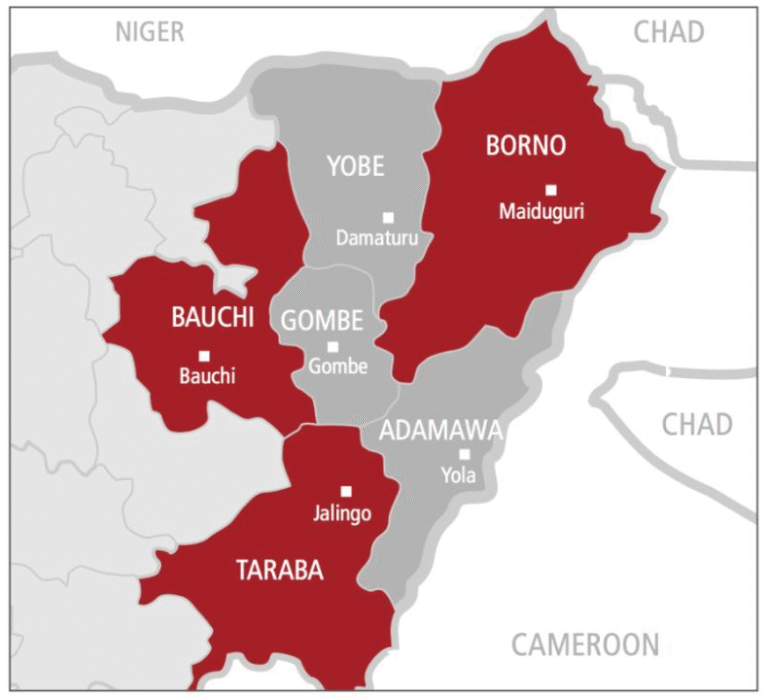By Atoyebi Nike
Farmers in conflict-hit communities across North East Nigeria are facing worsening hunger, loss of farmland, and displacement, as food insecurity tightens its grip on the region.
In a statement issued on Monday, the International Committee of the Red Cross revealed that more than 3.7 million people in the region are food insecure. Many of them are small-scale farmers who can no longer safely access their lands due to ongoing violence and displacement.
Modu Umar, a community leader in Dikwa, shared the growing desperation among residents. “Right now, we face severe food shortages. Some families are forced to walk long distances daily to gather firewood just to sell and buy food. Farming is the only solution to hunger,” he said.
In Gajibo, 70-year-old farmer Churi Ibrahim described how insecurity has drastically curtailed movement in rural areas. “Some people trek three hours to reach their farms. By the time you get there, you’re exhausted. Sometimes, my large family does not even get one meal a day,” he said.
Despite the threat of violence, many families continue to farm out of necessity. “Even when you’re afraid, you have to go,” said Bintu Konto, a mother of five. “If you miss the rainy season, there will be nothing to harvest.”
As the lean season begins a period when food stocks deplete and market prices soar pressure on households is intensifying. “This is when families have to start buying food, but many cannot afford to,” said Diana Japaridze, Head of the ICRC office in Maiduguri. “As a result, they are forced to reduce their food intake.”
The ICRC also noted that the growing food crisis is worsening malnutrition among children under five and pregnant or breastfeeding women. In response, the organization is supporting stabilization centres and running community education to improve child nutrition.
To strengthen food production and recovery, the ICRC has launched an agricultural support programme across both rainy and dry seasons. More than 21,000 households have received climate-adapted seeds, labour-saving planting tools, and training on sustainable farming practices.
The seed kits include staples like maize and rice as well as vegetables such as tomato and okra to enhance nutrition and food diversity. Nationally, the ICRC has partnered with the National Agricultural Seed Council to restore a vital water facility now powering NASC’s seed testing and greenhouse systems, boosting Nigeria’s agricultural infrastructure.
Still, the lean season remains a painful time for families unable to grow enough food. “For us, it is not just farming, it is survival,” said Ibrahim. “If you cannot feed your children, every day becomes a struggle.”
